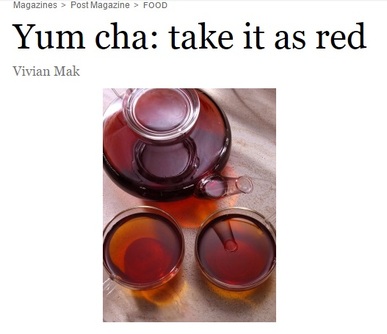Red Teas
|
Red tea (which is known as "black tea" outside of China) is the most popular type of tea in the West. It is Britain's unofficial national drink, while in Hong Kong it is used to make the famous milk tea.
Up until the Ming dynasty (1368-1644), mainstream tea production largely involved pressing green tea into cakes. But Zhu Yuanzhang, founder of the Ming dynasty, pushed instead for loose leaf production, which in turn enabled, or forced, tea producers to experiment with techniques. Continuous refinement evolved into several distinct production methods (or combinations of methods) and gave rise to the tea varieties we enjoy today. For the production of red tea, the raw leaves are allowed to bake in the sun, before going through a withering process where they are spread thinly on bamboo racks and kept at about 40 degrees Celsius, which helps them to oxidise and lose moisture. These steps, and an additional rolling process that lasts anywhere from 15 minutes to three hours, results in both the finished leaves and the brewed tea being red in colour. The leaves are then put in an incubator for full oxidation. Finally, they are heated to remove moisture, stop fermentation and further enhance the taste. Fully oxidised red tea could also be transported and stored for long periods without tainting the taste. Red tea was first shipped to Holland and Portugal, and later to other European countries, including Britain. Tea-loving Princess Catherine of Braganza, from Portgual, is credited with making the brew popular across Britain after she married King Charles II of England, in 1662. |
Many kinds of red teas were imported from across China; those from the Wuyi Mountains in Fujian province were relatively dark, hence the name "black tea".
One of the most popular English red teas is Earl Grey. According to legend, at the beginning of the 18th century, British politician Charles Grey (who would later serve as prime minister) visited Canton and was served a blend of Chinese tea with bitter orange peel. He brought this recipe back with him to Britain, but replaced the bitter orange with bergamot. Earl Grey tea is named after him. When tea, porcelain and silk were first being exported to Britain, people brewed tea the Ming way - putting one to two teaspoons of tea leaves into a big porcelain teapot and steeping for a few minutes. This method of brewing would often result in very strong tea, which might explain the addition of sugar and milk. A good red tea, however, does not need such additions. It should have a sweet and fruity aroma, a smooth texture and rich body, and go well with pastries or sweet delicacies. According to traditional Chinese medicine, red tea has a warm nature, and is therefore good for enhancing blood circulation and digestion. I would suggest the best time to drink red tea is when you're feeling sleepy after a hearty lunch at work. http://www.scmp.com/magazines/post-magazine/article/1294710/yum-cha-take-it-red |

